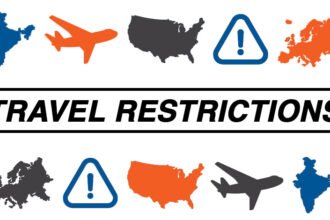Trades Recognition Australia (TRA) is the national authority responsible for assessing the skills of tradespeople seeking to migrate to Australia under the skilled migration framework. For trades applicants, obtaining a successful skills assessment from TRA is a critical step in the visa application process. However, there are instances where applicants may receive an unsatisfactory or “not suitable” assessment outcome. In such cases, understanding the TRA skills assessment appeals process, the typical timeline, and success rate statistics becomes essential. This article provides an in-depth exploration of the TRA appeals process, guidance on submitting an appeal, factors influencing success, and strategies to improve outcomes for skilled trades professionals.
Introduction to TRA Skills Assessment
TRA evaluates the qualifications and work experience of tradespeople to determine whether they meet Australian standards for specific occupations. The assessment focuses on technical competence, regulatory compliance, and demonstrated experience in the nominated trade. Skills assessments are required for a range of visas, including the Skilled Independent Visa (subclass 189), Skilled Nominated Visa (subclass 190), and Skilled Work Regional Visa (subclass 491).
Types of Skills Assessment Outcomes
When applying to TRA, applicants may receive the following outcomes:
- Suitable: The applicant meets Australian standards for the nominated trade and can proceed with visa applications.
- Conditionally Suitable: The applicant meets most requirements but may need additional evidence or steps to confirm competency.
- Not Suitable: The applicant does not meet TRA’s competency requirements and may need to undertake an appeals process if they wish to challenge the decision.
Receiving a “not suitable” assessment can be stressful, but understanding the appeals framework provides a structured path to contesting the decision.
Grounds for Appealing a TRA Skills Assessment Decision
TRA allows applicants to appeal decisions under specific circumstances. Valid grounds for appeal typically include:
- Administrative Errors: Errors in processing the application, misreading of submitted documentation, or technical mistakes.
- Insufficient Consideration of Evidence: Situations where valid work experience, qualifications, or supporting documentation were overlooked.
- Procedural Fairness Issues: Applicants may appeal if they believe TRA did not follow proper procedures during the assessment.
- New Evidence: Submitting additional evidence that was not available or considered during the original assessment can also be grounds for appeal.
It is important to note that appeals cannot be based solely on disagreement with TRA’s professional judgment; there must be a legitimate procedural or evidence-based rationale.
Initiating the TRA Skills Assessment Appeals Process
The appeals process begins by submitting a formal appeal request to TRA. Key steps include:
- Review the TRA Decision Letter: Carefully examine the reasons provided by TRA for the “not suitable” outcome. This will guide the appeal.
- Contact TRA for Clarification: In some cases, TRA allows applicants to request clarification or a preliminary review before initiating a formal appeal.
- Prepare the Appeal Submission: Compile all relevant documentation, including additional evidence, references, and explanations addressing the initial decision.
- Submit the Appeal: Appeals are submitted to TRA through the official channels, typically via email or the TRA online portal. Ensure the submission adheres to TRA’s format and requirements.
Required Documentation for Appeal
Successful appeals often include comprehensive documentation, such as:
- Detailed evidence of trade experience, including employer references and work logs.
- Updated or additional qualifications or training certificates.
- Technical documentation, such as schematics, blueprints, or project reports demonstrating practical competence.
- Any correspondence with TRA regarding the original assessment.
Accurate, detailed documentation strengthens the appeal and demonstrates genuine competency in the nominated trade.
TRA Skills Assessment Appeals Timeline
Understanding the timeline is crucial for managing expectations and coordinating visa application processes. While individual cases vary, the following timeline provides a general framework:
- Initial Review: After receiving the decision letter, applicants typically have 28 days to submit an appeal. This deadline may vary depending on TRA guidance.
- Acknowledgment of Appeal: TRA usually acknowledges receipt within 1–2 weeks, confirming that the appeal is under review.
- Evidence Assessment: TRA officers review additional documentation, verify work experience, and may consult industry experts. This phase can take 4–12 weeks depending on case complexity.
- Interview or Practical Assessment (if applicable): In certain trades, TRA may request a practical assessment or interview to evaluate competency. Scheduling can add 2–6 weeks to the process.
- Final Decision: TRA issues a final appeal outcome, typically within 8–16 weeks of the appeal submission. In complex cases, this timeline may extend.
Factors Influencing Appeal Timelines
- Volume of pending appeals at TRA.
- Complexity of trade and nature of evidence submitted.
- Requirement for external verification or industry consultations.
- Completeness and clarity of appeal documentation.
Applicants should plan their visa applications around these timelines, as TRA appeal outcomes directly impact visa eligibility and submission deadlines.
Success Rate Statistics for TRA Skills Assessment Appeals
While TRA does not publicly release detailed statistics for appeal outcomes, available industry reports and migration consultant insights suggest trends:
- Approximately 30–50% of appeals result in a reversal or conditional approval when new evidence is submitted effectively.
- Appeals based solely on subjective disagreement without supporting documentation are rarely successful.
- Trades with standardized technical competencies, such as electricians, plumbers, and welders, tend to have higher success rates when documentation clearly demonstrates compliance with Australian standards.
- Successful appeals often involve submitting additional training records, workplace references, or rectifying previously missing documentation.
Understanding these trends helps applicants assess their chances realistically and focus on strengthening the appeal submission.
Tips to Maximize Success in TRA Appeals
- Early Preparation: Begin collecting additional evidence immediately after receiving the “not suitable” decision.
- Professional Guidance: Engage a registered migration agent or trade consultant familiar with TRA assessment standards to review the appeal.
- Comprehensive Documentation: Include every piece of evidence demonstrating trade competency, including technical reports, employment letters, and training certifications.
- Clear and Structured Submission: Present the appeal logically, referencing specific points in TRA’s original decision.
- Follow TRA Guidelines: Strictly adhere to submission formats, deadlines, and procedural requirements.
- Evidence Verification: Ensure that all employer references, certifications, and work logs are verifiable and clearly demonstrate skills relevant to the nominated occupation.
Common Challenges in the Appeals Process
Applicants may face several challenges during the TRA appeal process:
- Incomplete Documentation: Missing certificates, incomplete work logs, or unverified references can delay or reduce appeal success.
- Misinterpretation of Trade Standards: Applicants may fail to demonstrate competency according to Australian standards, leading to a continued “not suitable” outcome.
- Communication Delays: High volumes of cases may result in delayed responses from TRA. Maintaining organized records and following up professionally is key.
- Complex Occupations: Some trades with multiple specializations may require additional verification or technical interviews, extending timelines.
Proactively addressing these challenges improves the likelihood of a favorable outcome.
Preparing for Potential Reassessment
Even after a successful appeal, applicants should be prepared for potential reassessment requests or audits. TRA may:
- Request further verification of employment or qualifications.
- Require updated or additional evidence for conditional approvals.
- Conduct follow-up assessments to ensure continued compliance with Australian trade standards.
Maintaining accurate, verifiable records and staying informed about trade regulations is essential for long-term success.
Conclusion
The TRA Skills Assessment appeals process is a structured pathway for trades applicants who receive an initial “not suitable” outcome. By understanding the grounds for appeal, preparing comprehensive documentation, adhering to submission timelines, and leveraging professional guidance, applicants can maximize their chances of a successful outcome. While appeal success rates vary, effective evidence presentation and clear demonstration of trade competency significantly improve the likelihood of reversing or upgrading an assessment decision. Awareness of the process timeline, potential challenges, and statistical trends allows trades professionals to strategically navigate TRA assessments and strengthen their pathway to skilled migration in Australia. This understanding is essential for applicants aiming to secure recognition of their skills, enabling opportunities for employment, professional growth, and permanent residency in Australia.



